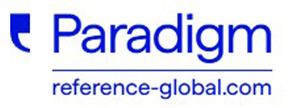INTELLECTUAL CAPITAL IN DIGITAL ECONOMY
DOI:
https://doi.org/10.1515/eoik-2015-0003Keywords:
intellectual capital, digital economy, knowledge, informations, resources, ICT, global marketAbstract
Today’s companies are dependent on intangible assets consisting of informations, knowledge, innovations and creativity which are the main resources of the digital economy. To emerge and survive in the global market, in the digital age, today’s companies must own performances which will outshine the competition and achieve economic progress. These performances are reflected in the intellectual capital that is in the minds of the human resources of the company, their mutual relations as well as relations with external stakeholders. Intellectual capital is one of the crucial concepts in creating competitive advantage in the digital economy. The aim of this paper is to point out the hidden value of intellectual capital, which for decades matures in silence, waiting for the right moment to “explode”. The knowledge that the company owns, as well as the way in which it applies, today is a decisive factor for achieving the optimal development potential of the digital economy and to create a stabile social system. Presenting the different methods of measurement scientists enabled realization of ownership rights and meausuring intellectual capital of the company. Protection of intellectual capital is essential, because in the digital economy, where almost everything is done electronically, the term “abuse” was given a whole new meaning. Finally, intellectual capital is the ultimatum necessary to achieve market dominance and achieving economic prosperity.
References
Baroš, Ž. (2010). Management. Panevropski univerzitet Apeiron Banja Luka.
Edvinsson, L. (2003). Corporate longitude – Navigation knowledge economy. Retrieved March 12, 2015. from https://differozagreb.wordpress.com/korporacijska-longituda/
Hodzić, A. (2014). Strategy overview of the Digital Agenda for Europe 2010-2020. Retrieved April 01, 2015 from http://dei.gov.ba/dei/media_servis/vijesti/default.aspx?id=13917&langTag=hr-HR
Kenjić, Z., Adamović, Ž. & Blaženović R. (2013). Knowledge management and research in the industry. Banja Luka: Society for the energy efficiency of Bosnia and Herzegovina.
Kolaković M. (2003). The theory of intellectual capital. Faculty of Economics in Zagreb.
Sveiby, K. E. (2001). Intellectual Capital and Knowledge Management. Retrieved September 01, 2015 from http://www.sveiby.com/articles/IntellectualCapital.html
Stewart, T. A. (1991). Intellectual capital is becoming America’s most valuable asset and can be its sharpest competitive weapon. Retrieved September 01, 2015 from http://archive.fortune.com/magazines/fortune/fortune_archive/1991/06/03/75096/index.htm
Turban E., McLean E. & Wetherbe J. (2003). Information technology for management - transforming business in the digital economy. Zavod za udžbenike i nastavna sredstva Beograd.
World Economic Forum. (2014). Global Information Technology Report 2014. Retrieved December 29, 2014 from http://reports.weforum.org/global-informationtechnology-report-2014/#section=thenetworked-readiness-index-rankings
Downloads
Published
How to Cite
Issue
Section
License
Copyright (c) 2015 ECONOMICS - Innovative and Economic Research

This work is licensed under a Creative Commons Attribution-NonCommercial-NoDerivatives 4.0 International License.




















